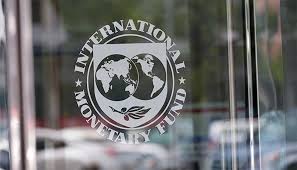The International Monetary Fund has brought to an end the argument that Ghana’s economy was experiencing challenges prior to Covid-19, saying, the country entered the Covid-19 pandemic with a favorable economic outlook.
It said in a detailed Article IV Consultation Document that "before the pandemic hit, the economy had been expected to grow at 5.8% in 2020."
The authorities had maintained macroeconomic stability following the successful completion of the Extended Credit Facility programme in 2019.
The Fund emphasised that “an extensive banking sector cleanup, together with an improved supervisory and regulatory framework, had laid the foundations for financial stability”.
It further said that the government’s response to the Covid-19 pandemic helped save lives and safeguard livelihoods.
“To contain the spread of Covid-19, the government implemented social distancing restrictions, including a partial lockdown in April 2020 and school and border closures. Growth slowed, food prices spiked, and exports were affected by a large decline in oil prices. However, a major monetary and fiscal policy relaxation cushioned the pandemic impact on economic activity”, it noted.
Economic recovery underway but fiscal rigidities and debt vulnerabilities increase
The Bretton Wood institution also said an economic recovery is underway, but fiscal rigidities and debt vulnerabilities have increased, saying, the rebound in activity coincided with the gradual easing of social distancing restrictions and the launch of an ambitious vaccination campaign.
“Government policies contributed to a record 2020 fiscal deficit, a sharp increase in public sector debt, and rising debt service costs. The 2021 budget undertook a difficult but important shift towards medium-term fiscal consolidation. The economic impact of the pandemic is fueling social demands on the government to reverse the decline in living standards and address youth unemployment.”, it explained.
Economic growth slowed to 0.4% in 2021 increasing poverty
Growth slowed from 6.5% in 2019 to 0.4% in 2020, due to lower mining production and the impact of Covid-19 restrictions, equivalent to an income per capita decline of 1.7%.
The Fund to this end said poverty increased, and half of all households reduced food spending during the partial lockdown.
However, the economy avoided the contractions seen across the region, it added.
“Growth should rebound to 4.7% in 2021, supported by a strong cocoa season and a recovery in mining and services, although the government fight against illegal mining may affect small-scale gold production while delayed well-drilling will continue to affect oil production this year”.
Latest Stories
-
Ken Ashigbey, Joyce Aryee and others grace MTN’s Festival of 9 Lessons and Carols
4 hours -
Obuasi Cricket Academy celebrates excellence at end-of-year awards night
5 hours -
WASSCE: Scanning of objective answer sheets to start tonight – WAEC
5 hours -
Education Minister hasn’t prioritised WAEC – Nortsu-Kotoe
5 hours -
Bawumia meets Manifesto Committee members to express appreciation
6 hours -
To chocolate, Ghana’s pride by Bioko
7 hours -
Chartered Institute of Bankers, Ghana, confers Honorary Fellow status on Victor Yaw Asante
7 hours -
BoG marks end of year with Thanksgiving Service
7 hours -
Ghana’s Next Sports Minister: The Debate Begins
7 hours -
Election 2024: NPP advised to be mindful of the reasons being ascribed to their election lost
8 hours -
GNFS urges Ghanaians to prevent fires during yuletide
8 hours -
Report tobacco users who smoke publicly – FDA advises
8 hours -
Abdallah Ali-Nakyea elevated to Associate Professor at UG School of Law
8 hours -
Kick2build commissions 5 libraries in Klo Agogo, donates school supplies
9 hours -
Slim and Fit Ghana donates to kids at Motherly Love Orphanage in Kwabenya
9 hours

